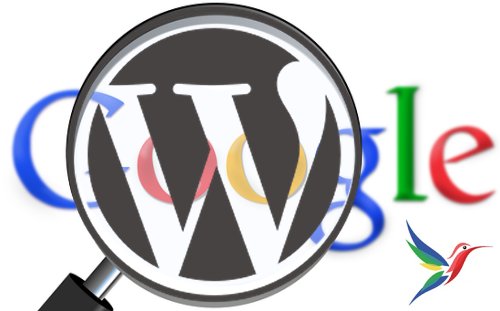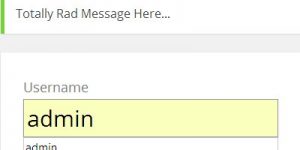Comment on WordPress SEO Tutorial by SEO Dave.

I have to admit I don’t like using social media for promotion, to date it’s been severely disappointing, I’ve got thousands of Twitter followers and auto Tweet many sites, have around 2,500 Google+ followers and use Facebook for local stuff. If I lost the above tomorrow I wouldn’t notice.
The future question is how important SEO wise are Google going to consider a Facebook Like, a Tweet etc… and currently I think it’s tiny, almost irrelevant compared to other SEO factors. Social Media is clearly the present, who doesn’t use Facebook now for communicating and discussing things, which means for Google search to remain current it needs to take this into account and I can see in the next few years being more important for Google rankings.
The links Facebook etc… send to sites are rel=”nofollow” so have no direct SEO benefit, reading between the lines I think all Matt Cutts has been saying is obvious, if you promote your content on social media sites like Facebook and Google+ more people are going to find and link to your content. Do Google really need to take Facebook likes etc… into account when it’s so easy to game, if the interest is real it will generate more links to the content as it’s also discussed on blogs etc… Imagine you created something that went viral on Facebook, it’s going to generate loads of links from blogs etc… With social media usage growing if you want people talking and linking to your content you have to have a social media presence.
Good luck using social media for promoting boring products no one ever talks about or links to though, AKA most ecommerce content :-)
Regarding over SEOing content, in my experience this is an SEO myth as long as we aren’t talking SEO SPAM. You’ve been reading my content for years and probably noticed I write with SEO in mind, I write descriptively. For example rather than writing “It’s a very nice product”, I’ll tend to write “The widget is a very nice product” (where widget is a relevant keyword or SERP). It’s not a natural way to write content, but it adds relevant keyword rich content and it works.
This is not SEO SPAM, it’s good SEO copy and can make a significant difference to the amount of SERPs covered in an article etc… without resorting to adding keyword lists etc… (which is SEO SPAMMY).
As you can appreciate a theme can’t change content in the above way, so most user generated content on a website isn’t close to well SEO’d or over SEO’d. Basically a theme or plugin doesn’t touch the main user generated content.
What a theme/plugin combination can do is reuse the content the user has generated and Stallion does this well. From an SEO perspective it’s SEO 101, you never use “Click Here” or “Home” for a links anchor text for example.
Stallion 6.2 uses the title of posts for the anchor text of links, used within headings etc… and this tells Google what a page is about SEO wise (anchor text in particular is important). The title element (title tag), all internal anchor text linking in, headings related to comments, headings related to the related posts plugins etc… all use the title of posts for the content. As long as users add their main SERP to the title of posts, Stallion covers the optimization for that keyword phrase well.
This currently works very well, taking into account I also write with SEO in mind (as described above) if there was currently an automated over optimized Google penalty my sites would be hit badly, and the ones with unique content are doing well: some of my test sites where I’m using thin affiliate content etc… are doing rubbish, but that’s to be expected, Google hates thin content.
If Google changes it’s algorithm to look for all internal links using the same anchor text, the same text used in headings etc… and deems these sites over SEO’d my sites are going to be the first to be hit badly. I don’t think this will happen, most new sites are generated using content management systems (CMSs) like WordPress and they all reuse content as I’ve described above, Stallion does it better than everything else. If Google moves this way how is it going to determine what’s actual over SEO and what’s the result of a CMS output? Should sites be penalised for over using “Click Here” too much :-)
I don’t think Google can move that way, but I’ve had this concern in the back of my mind for years and in Stallion 7.0 it will no longer be an issue for those who go to the trouble of using the Stallion All In One SEO built in plugin and add related keyword phrases. The phrases are used for anchor text, headings etc… which means the exact same text (the title tag) won’t be used over and over again.
I don’t see Google moving this way, but if they do Stallion 7.0 has it covered.
The above is all about onpage/onsite SEO, Stallion/WordPress has no control over what happens off site. Where it’s difficult to develop a CMS to use different content for links etc… (what Stallion 7.0 outputs) it’s completely natural to have incoming links with varied anchor text. If you do a lot of backlink building and always use the same anchor text for the links it’s going to look unnatural and programmatically this isn’t hard for Google to find and DOWNGRADE.
Since off page SEO is where the majority of Google rankings are generated this is where I believe Google puts it’s main efforts. I ran an SEO test a few years back where I added thousands of backlinks to the home page of a site using the same anchor text, it was penalized within 3 months and never recovered. Before understanding SEO well (a decade ago) I used blatant (in bulk) comment, guestbook and forum link SPAMMING and it worked really well, PR7 home page, hard top 10 SERPs (ranked well for the “Lingerie” SERPs for example), but Google penalized the entire domain after about a year, never recovered.
David


More Comments by SEO Dave
WordPress SEO Techniques
How to Noindex Paged WordPress Categories and Tags
Before I explain how to noindex paged categories and tags, first going to cover some basic SEO misunderstandings.
If you use a WordPress theme like the Stallion SEO Theme your tags, categories and other WordPress archives will use post excerpts. Have …
Continue Reading WordPress SEO Guide
WordPress SEO Techniques
WhiteHat SEO PR Sculpting : WordPress SEO of Categories Siloing
1,200+ posts in only 8 categories averages at 150 posts per category IF you have them spread evenly (which you won’t).
With the standard 10 posts per category that’s 15 pages deep, unless you have a high PR site (loads of …
Continue Reading WordPress SEO Guide
WordPress SEO Techniques
Whitehat SEO PR Sculpting : Delete WordPress Tags and Categories with NO Search Engine Traffic
If some WordPress tags get search engine traffic keep them and keep the same layout, but delete the tags that get no traffic.
This way your tags with traffic loose no internal backlinks and you waste no link benefit on tags …
Continue Reading WordPress SEO Guide
WordPress SEO Techniques
WordPress SEO Categories and Tags Optimization
I don’t use WordPress Tags because in structure they are the same as Categories.
A lot of webmasters overload their sites with Tags/Categories which means they need more link juice to power their sites SEO. You want most of your SEO …
Continue Reading WordPress SEO Guide
WordPress SEO Techniques
Google Sitelinks and Meta Descriptions Tag
For both questions I’ve not done anything special to achieve this, left it to Google to automatically set the meta description and the Google sitelinks. So what you see is what Google thinks are the best meta descriptions and sitelinks.
Stallion …
Continue Reading WordPress SEO Guide
WordPress SEO Techniques
SEO Impact of Font Sizes
That requires editing CSS files, each colour scheme and layout have their own CSS files, one for the colour scheme and one for the layout, the current two files your site uses are
/wp-content/themes/stallion-seo-theme/colors/layout-310r.css (layout)
/wp-content/themes/stallion-seo-theme/colors/style-brown.css (colour scheme)
So those are the two …
Continue Reading WordPress SEO Guide
WordPress SEO Techniques
WordPress Category Excerpts
The WordPress excerpt replaces the default snippet of text you see, the links to the post remain. So just a way to make your categories unique/SEO’d.
I’m sure there are ways to replace the category with custom content and a link …
Continue Reading WordPress SEO Guide
WordPress SEO Techniques
SEO of WordPress Categories
WordPress categories can gain SERPs in their own right, I link to my categories all the time from relevant pages. What I link to/from is based on what the content I’m linking from, regularly link directly to categories on other …
Continue Reading WordPress SEO Guide
WordPress SEO Techniques
WordPress Static Pages
If you want articles not to show on the home page you have the option of using WordPress Static Pages (“Pages >> Add New” instead of “Posts >> Add New”).
Static Pages (like an About Page) are only added to the …
Continue Reading WordPress SEO Guide
WordPress SEO Techniques
Matt Cutts – Google Over SEO Optimized Ranking Algorithm
Listened to the Podcast, lets see if I can link it direct in a comment for others to listen to:
Information from the PodCast:
All those people doing, for lack of a better word, over optimization or overly SEO – versus those …
Continue Reading WordPress SEO Guide
WordPress SEO Techniques
WordPress Themes and Search Engine Optimization of Headers, H1, H2, H3, H4
There’s no hard rules on the exact number and ratio of headers to use because the larger an article more scope for header usage, you wouldn’t add 10 different headers (various H*s) to a 250 word post for example, but …
Continue Reading WordPress SEO Guide
WordPress SEO Techniques
WordPress SEO Cache Plugins : WP Super Cache vs W3 Total Cache
WordPress Cache Plugins are a must use WordPress SEO plugins for most sites and which one WP Super Cache vs W3 Total Cache is a very good question and I’m afraid I don’t know the answer :-)
I use WP Super …
Continue Reading WordPress SEO Guide